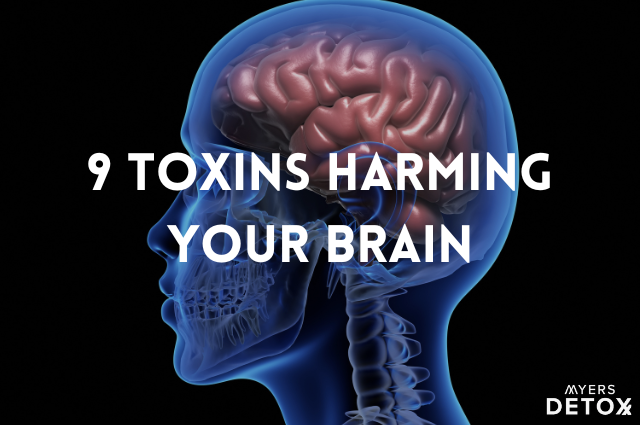Since the dawn of medicine, apple cider vinegar (ACV) has been used as a healing elixir, with records of its use going back as far as 400 BC.
In the past several years, as people are continuing to become more health-conscious, ACV has made a major comeback. In fact, you’ve likely heard of apple cider vinegar detoxes. But what’s the deal with apple cider vinegar? And do these detoxes really work?
In this article, you’ll learn:
- What an ACV detox is
- Whether ACV detoxes are all hype – or worth the effort
- How ACV may support metabolic processes
- The immune-enhancing effect of ACV
- And more
What Is An Apple Cider Vinegar Detox?
There are several versions of the apple cider vinegar detox, but it generally involves consuming an ACV beverage three times a day.
The ACV Detox recipe:
- 1 to 2 tablespoons of raw, unfiltered apple cider vinegar
- 8 ounces of purified or distilled water
- Sweetener of choice (honey, stevia, agave), typically one tablespoon
- Optional: cayenne pepper, ginger
Typically, people will drink their ACV beverage first thing in the morning, before lunch, and then at mid-afternoon.
The theory behind the ACV detox is that it helps to remove toxins from your body and boosts your metabolism. But does this vinegar drink hold up to the hype? Read on.
Apple Cider Vinegar Detox – Real or Fake?
Whether or not an apple cider vinegar detox will work for you is hard to say, primarily because there isn’t a lot of research specifically supporting “apple cider vinegar detoxes”.
With that being said, there is research to support the health benefits of apple cider vinegar. Therefore, if you’re looking to do an ACV detox to support metabolism, promote weight loss, enhance immunity, and support a healthy gut microbiome — ACV just might do the trick.
Here are some of the health-promoting benefits of apple cider vinegar:
Weight Loss
One of the most well-known benefits of ACV is its potential impact on weight management. Will apple cider vinegar melt away body fat like an ice cube on a hot day? Not quite. However, there is some evidence that consuming ACV regularly may support your weight loss efforts.
ACV is rich in acetic acid, which research shows may support feelings of satiety. Of course, when you feel more satisfied, a natural byproduct is reduced food consumption[1].
What’s more, there is some evidence that ACV may directly impact fat burning. In a 12-week trial involving a group of obese men, researchers found that daily intake of ACV resulted in significant reductions in body weight, belly fat, and BMI. The authors aren’t sure of the exact mechanism behind the weight loss, only citing a strong correlation[2].
One potential contributor could be apple cider vinegar’s impact on your gut microbiome. It’s no secret these days that your gut health impacts pretty much every system in your body. To ensure a healthy microbiome, the goal is to promote the growth of healthy bacteria while inhibiting the overgrowth of the bad guys.
Research shows that ACV can naturally help to enhance the balance of bacteria in your gut, favoring the healthy bugs while assisting in clearing out unwanted microbes. But here’s where things get really interesting — it appears that AVC specifically promotes the growth of bacteria that help with weight loss, such as Lactobacillus and Bifidobacteria[3].
Blood Sugar
You may hear the term “blood sugar: and think it only applies to those with diabetes, but nothing could be farther from the truth. Of course, people with diabetes benefit greatly from regulated blood sugar, but high glucose levels in your blood can cause havoc whether you’re diabetic or not.
And if weight loss is your goal (as is true for many people looking at the ACV detox), then blood sugar regulation should be number one on your list. When your blood sugar is off, it can lead to cravings, energy dips, and general feelings of fatigue.
If you’ve ever had a sweet breakfast like donuts or pancakes, you’ve probably noticed that in a few hours, you want more sugar. That’s what we like to call the blood sugar rollercoaster. If you stay on the ride, you’ll be having ice cream for lunch and a piece of cake for dinner.
Research shows that the compounds in apple cider vinegar support blood sugar levels. It’s suggested that ACV helps to lower blood sugar by increasing your cells’ sensitivity to the hormone insulin. Insulin is responsible for shuttling glucose out of your blood and into your cells. With more insulin sensitivity, your cells become “hungrier” for glucose, taking it up and out of the blood at a more consistent rate[4].
To date, most of the research on ACV and blood sugar has only been conducted in people with diabetes or some form of insulin resistance. Whether this translates into healthy people is yet to be determined, but it certainly can’t hurt.
Blood Lipids
High levels of blood lipids like triglycerides and cholesterol are markers for heart disease. When you have excess triglycerides and cholesterol roaming around in your blood, they can deposit in the walls of your vessels, setting the stage for atherosclerotic plaques.
Research shows that the acetic acid in vinegar may play a vital role in reducing both triglycerides and cholesterol in your blood. It’s suspected to reduce cholesterol by increasing bile fowl. Bile is made up of a number of components, with cholesterol being one of them. The more bile you produce, the more cholesterol is needed. Therefore, as bile production goes up, cholesterol in your body goes down.
Meanwhile, in your liver, acetic acid inhibits the synthesis of triglycerides[5].
Immune Support
Many of today’s chronic illnesses are rooted in inflammation and oxidative stress. Apple cider vinegar not only contains antioxidant compounds, but it may also be beneficial in calming inflammation[6].
What’s more, research shows that ACV is active against a range of microbes acting as a natural antibiotic. Some of the most common microbes ACV might help to fight include candida, E. coli, and Staphylococcus. Cell culture studies show that when ACV is added to a petri dish with harmful bacteria, it helps to break down the cell walls. Furthermore, there is evidence that ACV may help to downregulate the expression of inflammatory chemicals released by harmful bacteria[7].
Takeaway: The Verdict On Apple Cider Vinegar
Is the apple cider vinegar detox craze all hype, or is it worth a shot?
While ACV may not directly impact your detoxification pathways, there is evidence that it may support some of the end goals you’re after. For instance, if you’re looking for weight loss support, metabolic support, and a boost to your immunity, ACV may be worth a shot.
With that being said, it’s unlikely that you’ll notice life-changing results with ACV alone.
If you’re looking for a more potent way to detox, there are several herbs and foods out there that can specifically target your liver and support your body’s natural detoxification pathways. In fact, I’ve included many of them in my Daily Detox supplement.*
Daily Detox is a combination of liver support, metabolic support, nutrient-dense superfoods, immune support, and prebiotics. It’s meant to be taken daily (as the name suggests), so that you’re not just giving your body a yearly, or twice annually, boost in detox, but rather supporting your detox pathways each and every day.
*These statements have not been reviewed by the FDA. Daily Detox is a dietary supplement and is not intended to diagnose, treat, cure, or prevent any disease. It is not intended to replace any medication or healing modality prescribed by your medical doctor. Please consult with your doctor before beginning a new supplement regimen.









